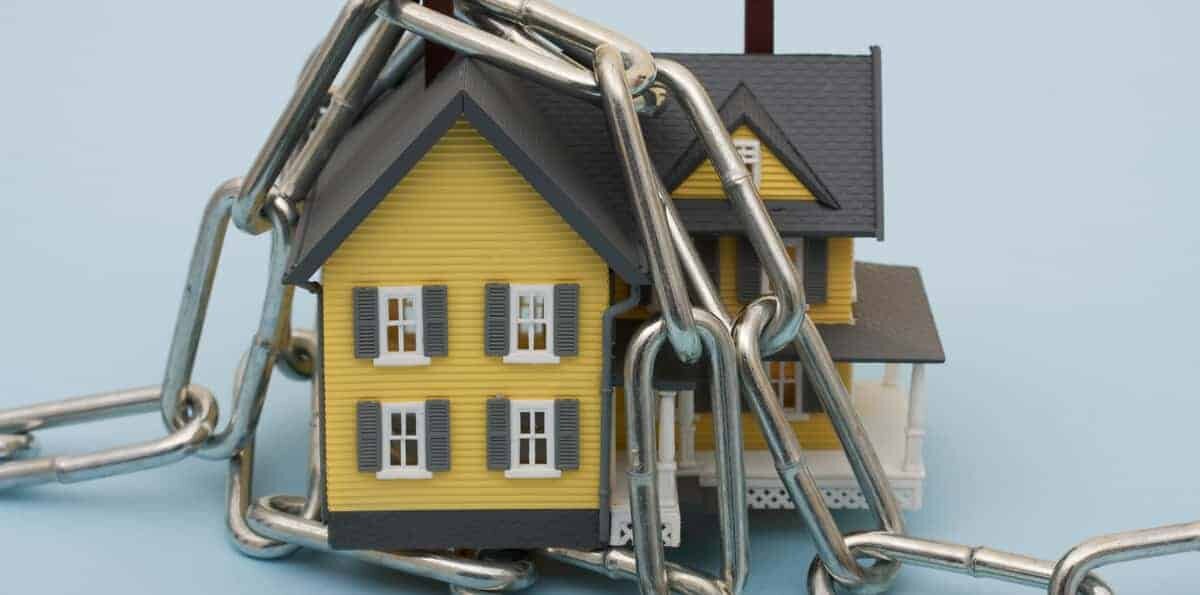In this time of unpredictability in the housing market, numerous individuals in the United States are contemplating the sale of their homes.
Undoubtedly, selling a house can be a daunting and tension-inducing endeavor, even under favorable circumstances.
However, what if you find yourself facing a lien on your property? Can you proceed with selling a house encumbered by a lien?
the short answer is yes. Nevertheless, it is advisable to conduct further research to gain a comprehensive understanding of the topic and acquaint yourself with the necessary steps to be taken.
What Is a Lein on a House?
A lien represents a legal entitlement or claim imposed on assets, typically serving as collateral to satisfy an outstanding debt. It serves as a form of assurance for an underlying obligation.
For instance, a loan repayment serves as an example of such an obligation. Failure to fulfill this commitment may grant the lender or creditor the right to seize the asset.
When a lien is placed on a house, it specifically pertains to the property itself being used as collateral due to the owner’s failure to meet certain financial obligations.
While it is possible to resolve liens, if the homeowner refuses or neglects requests to address the obligation, there is a potential risk of the property being seized.
Furthermore, liens on one’s home can have adverse effects on their credit score. By either settling the debts or establishing payment arrangements, homeowners can take steps towards removing the liens.
What Are the Most Common Liens?
There are a number of different types of liens that can be filed against your property. Let’s take a look at the most common property liens.
Construction Lein
The most straightforward and frequently encountered type of lien is the construction lien. It arises when a contractor or supplier has not received payment for the work or materials they provided for the property.
The most common solution for swiftly resolving this type of lien is to settle the debt by making the payment. Once this is done, you can proceed with the sale of the property.
In case the debt amount is substantial and difficult to pay in one go, there are alternative options available. Your real estate agent may be able to negotiate including the lien repayment within the closing costs of the sale. However, it’s important to note that this would reduce the expected profits from the home sale.
HOA Lein
When you violate the regulations set by your Homeowners Association (HOA) or fail to fulfill your fee obligations, the HOA has the authority to place a lien on your property.
To swiftly resolve this type of lien, the most efficient approach is to settle the outstanding dues. Once the owed amount is paid, the lien will be released and no longer encumber your property.
Department of Revenue Lien
When you fail to pay your state taxes, the Department of Revenue can file a lien against your property. Among the various types of liens, this particular one is more severe and may necessitate seeking legal advice or hiring a certified public accountant (CPA).
Once again, the most advisable course of action is to settle the lien by paying the outstanding taxes. However, if you are unable to do so, there may be alternative options available to you.
One possible option is to offer substitute collateral for your property. For instance, if the lien is placed on your primary residence but you also own a rental property, you might be able to transfer the lien to the rental property. This approach can help facilitate the sale of your home if it is crucial for you to proceed with the transaction.
IRS Lien
This is the most severe and critical form of lien, known as an IRS lien. It is imposed by the Internal Revenue Service (IRS) when a homeowner fails to pay their federal taxes. Resolving this type of lien typically requires the assistance of both a certified public accountant (CPA) and an attorney.
Dealing with an IRS lien is highly challenging and considerably different from addressing other types of liens, such as a materialman’s lien. The IRS holds super-priority over all other liens, making the process of settling the lien time-consuming, complex, and frustrating.
The presence of an IRS lien can significantly delay the sale of your home. Consequently, there is an increased likelihood of the buyer withdrawing their offer and seeking an alternative property.
Do Liens Expire?
The statute of limitations on liens varies from state to state, with different laws governing the time period. However, simply waiting for the statute of limitations to expire is not the most effective approach for resolving a property lien. In many states, creditors have the option to extend the duration of a lien by re-filing it after the initial statute of limitations has expired.
How to Sell a House With a Lien
To proceed with the sale of your house, the most effective approach to resolving a lien is to promptly pay off any outstanding debts and clear your title.
If the debt is beyond your means, you may consider using the proceeds from the sale of your home to settle the remaining amount. Your real estate agent can include the lien repayment in the settlement agreement, deducting it from your proceeds.
In many cases, clearing the title involves verifying the satisfaction of the debt and ensuring proper documentation of its resolution.
However, certain liens can be more complex, requiring the assistance of a lawyer and a CPA to dispute them. Although hiring an attorney incurs costs, it can potentially save you thousands of dollars and facilitate the sale of your house.
Transferring the lien to another asset, such as another property, is also an option, as mentioned earlier.
If paying the lien is financially challenging, you can explore obtaining a bond. Although this approach is costly, it allows you to proceed with the sale by providing security for the lien, resulting in a clean title for your house.
Clearing Your Title as Soon as Possible Should Be a Priority
Selling your house becomes more complicated when there is a lien on your property. To facilitate the sale and avoid delays, it is crucial to promptly address the lien by clearing your title through debt repayment.
Preventing this issue is best achieved by staying current on your financial obligations. Falling behind on debts, regardless of the lien type, can deter potential buyers and significantly prolong the sale process.
How Can You Prevent Title Issues Before They Happen?
To safeguard yourself against potential title issues when selling your home, there are several precautions you can take.
Firstly, it is advisable to obtain title insurance when purchasing a property. This insurance provides protection in case a previous owner had a lien on the property. With title insurance, you are shielded from the burden of dealing with liens that should not be your responsibility.
Another crucial step is to ensure timely payment of taxes and fees. While this may seem obvious, it is essential to be especially diligent in meeting all financial obligations if you plan to sell your home in the future.
If you suspect the presence of a lien on your property, it is important to openly communicate this with your real estate agent. Although they are not legal professionals, they can guide you towards appropriate actions, such as consulting with your CPA or engaging an attorney.
Selling a House With a Lien On Your Own
Selling a property with a lien on your own is indeed possible, but it often entails significant time and stress.
Regardless of whether the lien is from the IRS, an HOA, or a bank, they have the authority to impede the sale until the debt is resolved. In some cases, they can even sell the home to recoup the owed amount.
To proceed with an independent sale, the outstanding debt must be repaid. Once this is done, the party that filed the lien will provide a Letter of Satisfaction as confirmation.
However, the easiest and least stressful option is to sell your house to a cash buyer like us. This way, you can walk away from your lien issues with money in hand.

